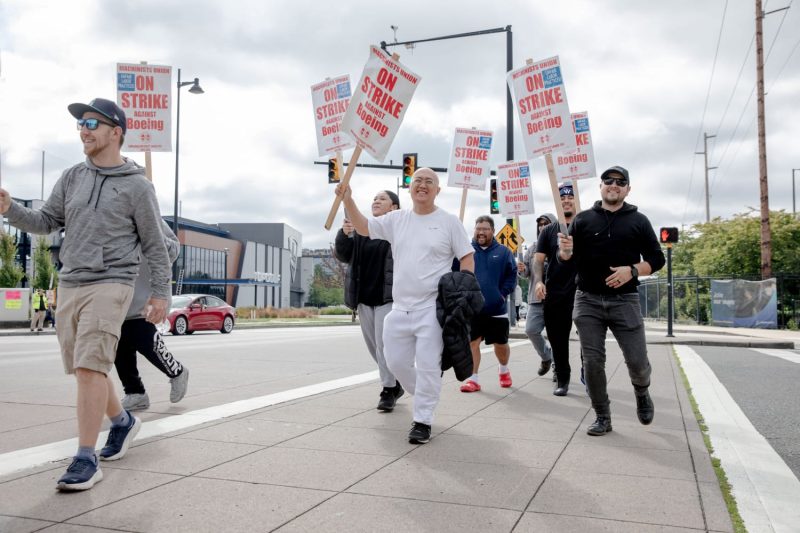The Boeing Factory Strike: A Standoff Impacting the Aviation Industry
The ongoing strike at the Boeing factory has reached a critical juncture as it crosses the one-month mark, creating significant pressure on the new CEO to address the concerns of the workers and resolve the labor dispute. The strike, involving thousands of workers, has disrupted production, stalled deliveries, and raised concerns within the aviation industry about potential long-term impacts on Boeing’s reputation and market standing.
At the heart of the strike are issues related to job security, wages, and working conditions. Workers have expressed frustration over stagnant wages, increasing workloads, and job insecurity amidst a backdrop of corporate restructuring and cost-cutting measures. The lack of progress in negotiations has only served to escalate tensions, with both sides digging in their heels and showing little willingness to compromise.
The strike’s impact on Boeing’s operations has been profound. With production lines at a standstill and deliveries delayed, the company is facing a backlog of orders, potential financial losses, and reputational damage. Customers are growing increasingly concerned about the disruptions to their supply chains and the uncertainty surrounding future deliveries, leading to a loss of trust and confidence in Boeing’s ability to meet their commitments.
As pressure mounts on the new CEO to end the standoff and find a resolution, the stakes are high for both the company and its employees. The CEO’s leadership and decision-making during this critical period will not only shape the outcome of the strike but also set the tone for future labor relations at Boeing. It is imperative that a solution is reached that addresses the concerns of the workers while also ensuring the company’s long-term viability and competitiveness in the global aviation market.
In conclusion, the Boeing factory strike represents a significant challenge for the company and its new leadership. The outcome of the strike will have far-reaching implications for Boeing’s operations, reputation, and relationships with its workforce and customers. It serves as a reminder of the importance of effective labor management practices, communication, and conflict resolution mechanisms in maintaining a healthy and productive work environment. As the standoff continues, both sides must demonstrate flexibility, empathy, and a commitment to finding common ground to reach a mutually acceptable resolution.

